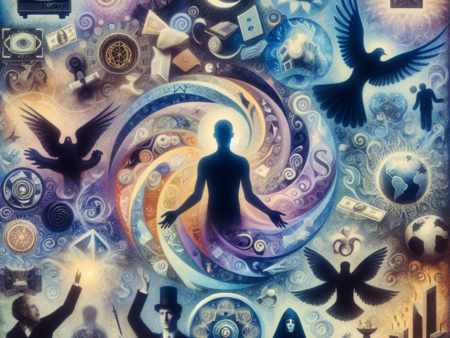Introduction
In today’s world, anti-porn messages are everywhere—especially in religious spaces. While the intent is to protect, a deeper look reveals a troubling irony: many people are introduced to porn for the first time through religious content that warns against it.
This post explores a powerful new perspective on porn addiction, not as a matter of morality alone, but as a human and spiritual struggle—rooted in unmet needs, misplaced shame, and the potential for redemptive healing.
1. When the Warning Is the Introduction
For many, the first time they encountered the idea of porn wasn’t through curiosity or peer pressure—it was in a sermon, a religious book, or a warning from a parent.
Instead of educating or equipping, the message often goes like this:
“Porn is evil. Don’t watch it.”
To a young, impressionable mind, that warning can spark curiosity, not resistance. And so begins a cycle of secrecy, guilt, and shame—ironically started by the very message meant to prevent it.
2. The Backfire Effect of Anti-Porn Messaging
Here’s the paradox: anti-porn content can be subliminally suggestive. It often:
- Mentions sexual behavior repeatedly
- Describes explicit scenarios as warnings
- Embeds images or keywords that trigger arousal
The brain doesn’t always distinguish between “avoid” and “pursue” when it’s emotionally stimulated. Just like being told “don’t think of a pink elephant” makes you picture one, constantly thinking about avoiding porn can unintentionally keep your mind locked on it.
3. The Deeper Issue: Sexual Deprivation
Porn addiction isn’t always about lust—it’s often about lack.
Many who struggle are dealing with:
- Lack of intimacy or romantic partnership
- Emotional isolation
- Repression of natural sexual needs
- Unspoken trauma
Sex is a biological and emotional need. When it’s starved or shamed, the mind tries to feed it—often in distorted, compulsive ways. This can escalate to:
- Obsessive fantasies
- Romanticized delusions
- Escapist behavior
- Mental and spiritual imbalance
4. Healing the Divide: Faith and Recovery Can Coexist
If your beliefs have made you feel ashamed for your struggle, here’s the truth:
You are not broken. You are human. And your faith can be your healing—not your punishment.
Let’s shift the lens:
➤ Recognize the Human Within the Believer
Your biology isn’t sinful. It’s sacred. Recognize your urges, don’t demonize them.
➤ Distinguish Shame from Conviction
- Shame says: “You’re unworthy.”
- Conviction says: “You’re meant for more.”
Let conviction guide you—not shame.
➤ Reframe Spiritual Practices
Pray not just for abstinence, but for strength, wholeness, and connection. Meditate on your worth. Seek scriptures that uplift, not just command.
➤ Surround Yourself with Compassionate Support
Avoid harsh, judgmental voices. Find mentors, groups, or faith-based recovery programs that honor both your struggle and your humanity.
➤ Focus on Becoming, Not Just Avoiding
You are not defined by what you’re trying to quit. You are defined by what you’re trying to build—a life of purpose, peace, and connection.
Conclusion: You Were Never Meant to Carry This Alone
If your spiritual path has been wrapped in guilt and silence, this is your call to liberation. You can honor your faith and your humanity at the same time.
You are not alone.
You are not dirty.
You are not beyond healing.
Your recovery is not just a personal victory—it’s a spiritual awakening.
📢 Call to Action (Optional):
If you resonated with this post, consider joining our supportive community [insert Discord, email list, or resource link]. Let’s heal, grow, and reclaim our stories—together.








